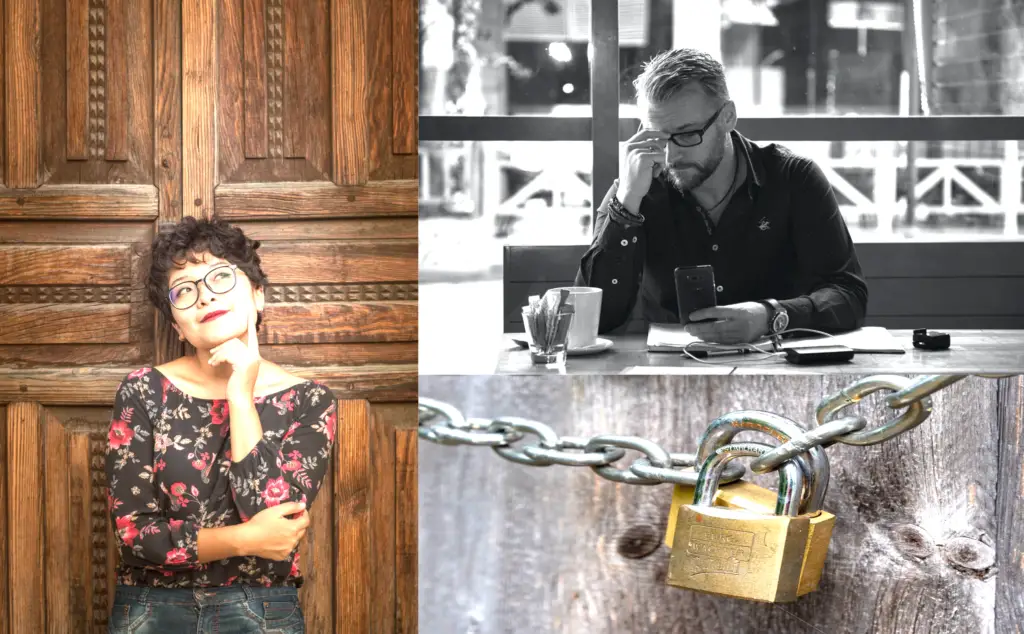Are escape rooms difficult? How tough are they?
I have been running escape rooms for 7 years and I hear these questions often.“Do you have to be smart to do an escape room?” “Are escape rooms hard?” “What if I can’t get out?” What I tell them may surprise you.
Escape Rooms are meant to be difficult, but anyone is capable of attempting or escaping the escape room. All of the clues and answers are able to be discovered and solved inside the escape room. Don’t worry! You will not need prior knowledge to do an escape room and you will get hints if you get too stuck.

How difficult are escape rooms?
Most escape rooms aim for a 30% escape rate so that odds are against your group regardless of each person’s intellect. Escape rooms do this so that groups feel proud, excited, and accomplished if they are able to escape the room. If the escape rate is too high. Then the escape or the win does not feel well earned or very rewarding. Keeping a low escape rate also helps those who lose not feel as bad about losing. If an escape room had an 80% completion rate and someone lost, they would feel pretty stupid about losing it.
What is an escape rate?
| Escape Rate = (Amount of total attempts × Amount of escapes ) ÷ 100 |
The Escape rate, also known as the completion rate, is the rate given by comparing the number of total escapes to the overall total number of groups that have attempted an escape room. The escape rate is a percentage that reflects how difficult the escape room actually is. The lower the escape rate the more difficult the room will be.
Some escape rooms will tell you the escape rate by percentage or they will place the rate into a certain category. For example, they may say “Level of difficulty: Beginner (Easy), Intermediate (Medium), Expert (Hard). The graph below explains what range of percentages falls into each difficulty category.
| Difficulty Level | Escape Rate (%) |
| Beginner | More than 40% |
| Intermediate | 30%-39% |
| Advanced | Less than 30% |
What makes escape rooms difficult?
It’s true. Escape rooms can be very difficult, but not for the reasons you might think. Yes, there are puzzles, riddles, and other various difficult challenges that will be tough to overcome. However, the most common mistakes I see people make don’t have to do with actually solving the game. Escape rooms design their rooms to have a lot of moving pieces. This forces groups to split up and work on different puzzles. Finding multiple clues at once can be confusing for a group that lacks good communication and organization. It is easy to misplace a clue or miss things if you aren’t staying organized or communicating properly.

The number of times I have seen people find a key, put it in their pocket, and forget about it blows my mind. Later on, when the time comes to need that key and it is nowhere to be found can cause a huge delay for the group. Especially, if the group only had 60 minutes and spent 10 minutes looking for the key they already found a long time ago.
Simple communication and organization would have prevented that scenario from happening.
What if I can’t get out?
If you get stuck and can’t get out because the room is too hard; then that’s okay. Escape rooms have a clue or hint system in place to help a struggling group if need be. Usually, escape rooms are willing to help you, at least up to 3 times. How they do this can vary. The list below reflects the various ways they may choose to assist you:
- Have a TV that pops up clues, hints, and tips
- Intercom system to communicate clues, hints, and tips
- An attendant in or out of character makes entry to the room to assist you
- Walkie talkies
- Text messages
- May deliver notes or letters
Safety-wise you will always have a way out in case of emergencies. The escape room operator will inform you of their specific policy before you enter the escape room. (Side note: Check out my article on [Are escape rooms dangerous?]) for more tips about this or other safety concerns).



